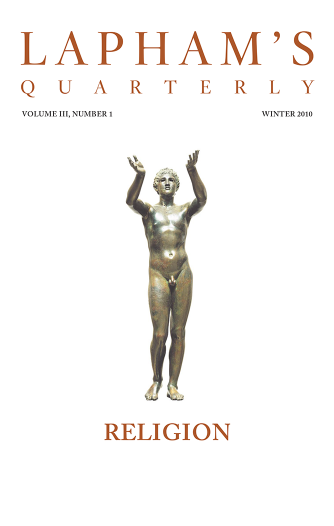Praxagora: Citizens, it’s you who are the cause of all this trouble.
You vote yourselves salaries out of the public funds and care only for your own personal interests; hence the state limps along like Aesimus. But if you listen to me, you will be saved. I assert that the direction of affairs must be handed over to the women, for it’s they who have charge and look after our households.
Second Woman: Very good, very good, it’s perfect! Say on, say on.
Praxagora: They are worth more than you are, as I shall prove. First of all, they wash all their wool in warm water, according to the ancient practice. You will never see them changing their method. Ah! If Athens only acted thus, if it did not take delight in ceaseless innovations, would not its happiness be assured? Then the women sit down to cook, as they always did. They carry things on their head as was their wont. They keep the Thesmophoria, as they have ever done. They knead their cakes just as they used to. They make their husbands angry as they have always done. They receive their lovers in their houses as was their constant custom. They buy delicacies as they always did. They love unmixed wine as well as ever. They delight in being loved just as much as they always have. Let us therefore hand Athens over to them without endless discussions, without bothering ourselves about what they will do. Let us simply hand them over the power, remembering that they are mothers and will therefore spare the blood of our soldiers. Besides, who will know better than a mother how to forward provisions to the front? Woman is adept at getting money for herself and will not easily let herself be deceived. She understands deceit too well herself. I omit a thousand other advantages. Take my advice, and you will live in perfect happiness.
From Women at the Ecclesia. The Greek playwright often took current events and contemporaries as subjects for his plays, attacking the influential politician Cleon in The Knights, satirizing Socrates and his acolytes at the “Thinkery” in The Clouds, and, in this work, critiquing the government of Athens by imagining a communistic takeover of its assembly by women. Aristophanes is thought to have written some forty plays, eleven of which are extant. He died around 388 bc.
Back to Issue





